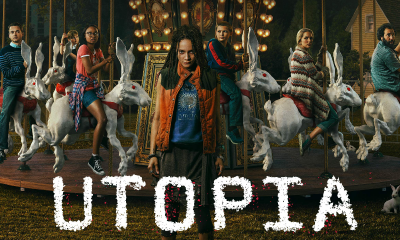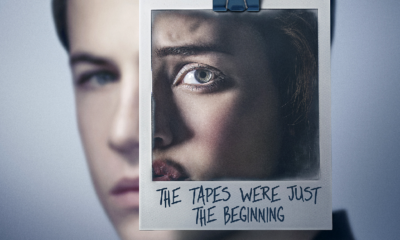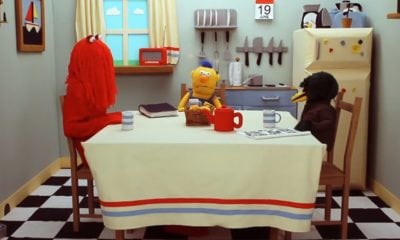Movies and TV
There’s Something Terribly Wrong With “Euphoria”
The teen drama “Euphoria” was described as “groundbreaking” and “controversial” by mass media. But that’s putting it lightly. With countless explicit and highly disturbing scenes involving minors, “Euphoria” ends up accomplishing one major goal: Grooming its young viewers. Here’s a deeper look at this insidious series.
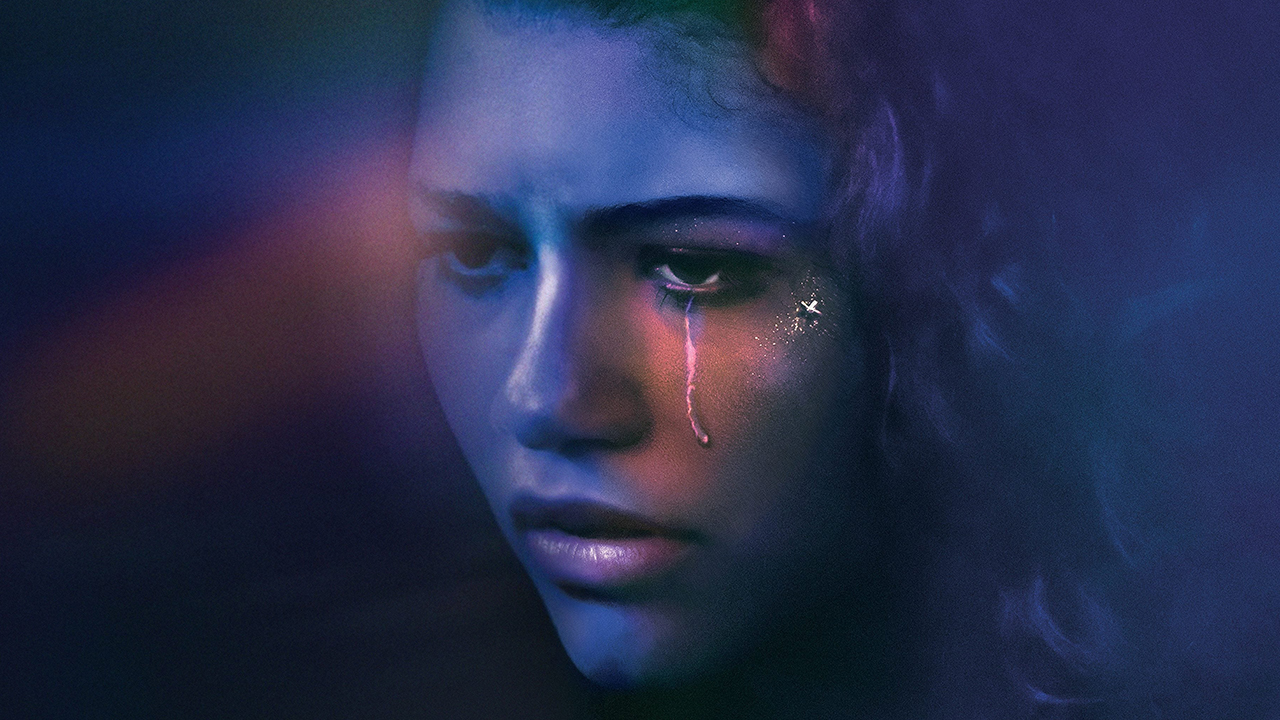
The least one can say is that the teen drama Euphoria is a major hit. It is HBO’s second most-watched show of all time, behind only Game of Thrones, with over 6 million viewers per week. Videos and memes of the show are highly viral, especially on TikTok, the favorite social media of children and teenagers. The show’s stars are now major celebrities and are avidly followed by droves of young fans.
With all of that being said, here’s a question: How many adults actually sat down and watched this thing? Because I did. And it did not leave me feeling ‘euphoric’ at all. Actually, it left me with the gut feeling that I’ve witnessed something deeply toxic. And why are there so many penises in that show marketed to minors?
Euphoria is not merely another edgy drama that tackles teen issues such as drugs and sexuality. It goes way beyond that. The only word that properly describes what’s going on in Euphoria is “grooming”.
The goal of child groomers is to “establish a connection with children in order to lower their inhibitions and desensitize them to sexuality”. In a twisted and insidious way, Euphoria accomplishes just that. Appropriately enough, Drake – who was accused of grooming teenage girls including 14-year-old Millie Bobby Brown – is an executive producer of the show.
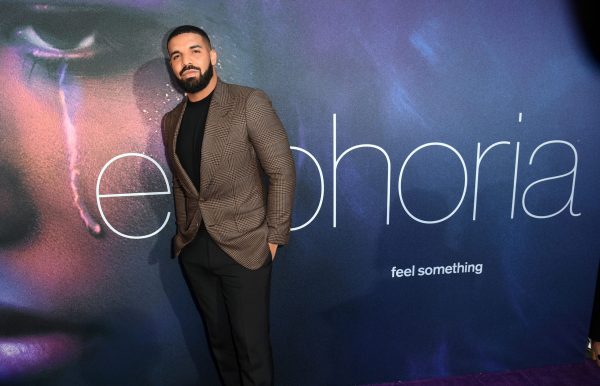
Drake at the premiere of Euphoria.
Some might respond: “You don’t get it because you’re out of touch with youth culture”. No, that’s not it. Euphoria is not “youth” and it is not “culture”. It is old social conditioning. The fact that the characters of the show are constantly on their phones doesn’t mean that the show reflects young people. It actually reflects what “they” want young people to become.
The depraved scenes involving minors we see in Euphoria were written by a 37-year-old man named Sam Levinson – the son of famed Hollywood director Barry Levinson. Based on the Israeli miniseries of the same name, the US version of Euphoria manages to take things to another level.
I realize that I’m sounding a bit overdramatic. However, several observers are equally puzzled and disturbed by the fact that Euphoria is being marketed to teenagers. In January 2022, D.A.R.E. (Drug Abuse Resistance Education program) released a statement about Euphoria stating:
“Rather than further each parent’s desire to keep their children safe from the potentially horrific consequences of drug abuse and other high-risk behavior, HBO’s television drama, ‘Euphoria,’ chooses to misguidedly glorify and erroneously depict high school student drug use, addiction, anonymous sex, violence, and other destructive behaviors as common and widespread in today’s world.
It is unfortunate that HBO, social media, television program reviewers, and paid advertising have chosen to refer to the show as ‘groundbreaking,’ rather than recognizing the potential negative consequences on school age children who today face unparalleled risks and mental health challenges.”
The key word in this statement is “destructive”.
In order to expose its young viewers to highly explicit scenes, Euphoria exploits a loophole: It is rated 18+ and most of the actors who play highschoolers are over 18. Therefore, the show can feature scenes of sexuality, violence, and drug abuse with no restrictions. On the other hand, the series is clearly marketed to teens and pre-teens and there is absolutely nothing stopping them from watching it.
The days of young people watching shows on the family TV set are gone. Most of them are now watching streaming content on their portable devices in complete privacy. Meanwhile, insidious shows such as Euphoria whisper messages in their headphones while these kids’ parents are completely clueless.
But don’t take my word for it. After watching the first season (I’m not ready to subject myself to another 10 hours of this), I’ve condensed the stories of the three main characters of the show. You be the judge.
Rue: The Pills Agenda
Rue is the main protagonist of the show and its all-knowing narrator. The character is played by Zendaya, an actress who is immensely popular with children, mainly due to her recurring role in Spiderman movies. Not unlike Miley Cyrus, Zendaya’s breakthrough role was on a Disney Channel sitcom.
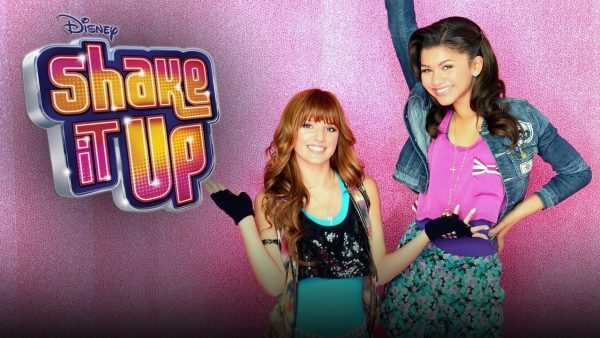
Zendaya on Disney’s Shake it Up.
The young people who love Zendaya and tune in to Euphoria are in for a shock.
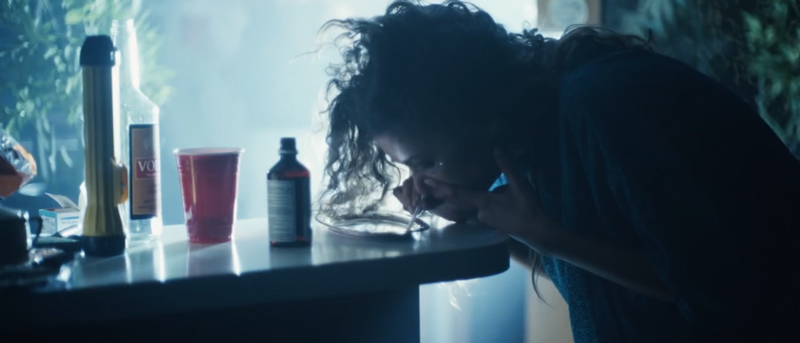
In the first minutes of Euphoria, we see Rue snorting crushed pills at a party.
Rue is hopelessly addicted to drugs, especially benzos and opioids. Although she clearly struggles with her addiction, the series manages to present her drug experiences in an insidiously attractive light.
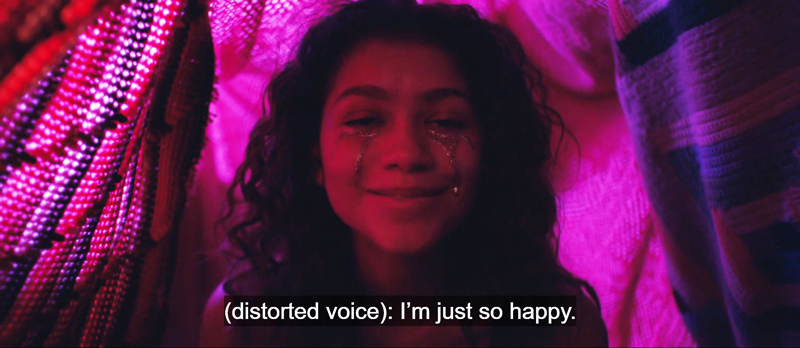
When Rue is high, she’s always all cozy and happy. There’s also cool music in the background and pleasing visual effects. In short, everything is there to make the young viewers want to try whatever she’s doing.
At the beginning of the series, Rue states that she suffers from anxiety, OCD, and bipolar disorder. Later, she is so depressed that she cannot even walk to the bathroom and ends up in the hospital. The show makes one thing clear: Only drugs can bring relief to Rue. Otherwise, existing is a nearly unbearable task.
At one point, Rue talks about the first time she was given liquid valium at the hospital:
“This is it. This is the feeling I was searching for my entire life, for as long as I can remember. Because suddenly, the world went quiet and I felt safe in my own head”.
Later, Rue sings the praises of opiates.
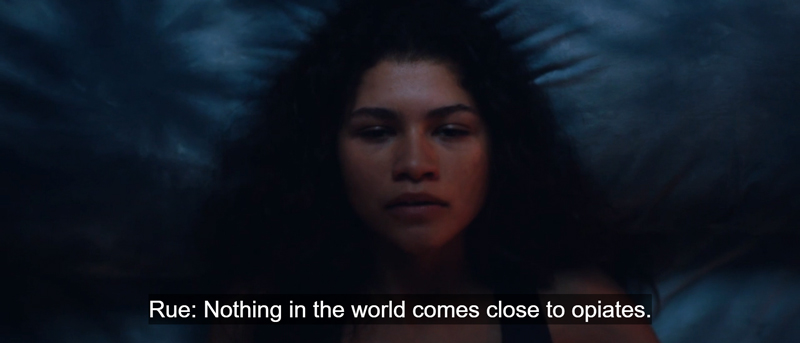
Rue says: “Nothing in the world comes close to opiates. A good ES 7.5 Vicodin. F*ck. But honestly, the best thing I ever had is Fentanyl. And there’s not a thing on planet Earth that compares to Fentanyl”.
The scene ends like that. There’s no “but opiates will kill you”. Because they will. According to the CDC, opiates overdoses killed 75,673 people between April 2020-April 2021. That’s 75 THOUSAND people in 12 months. The main cause of these deaths: Fentanyl.
Despite these catastrophic figures, the main character of Euphoria is literally selling Fentanyl to young viewers, even going as far as saying that “nothing in the world” compares to it. Yes, the series does show that there’s a bad side to addiction. However, Rue is so miserable when she’s sober that one almost wants her to get high again so she stops being so depressed.
Towards the end of the season, Rue talks with a man who is trying to help her break her addiction. While he tries his best, she makes one thing clear: Drugs are the only reasons she hasn’t killed herself yet.
In short, Rue is not merely a teenager experimenting with pot and such. She craves synthetic opioids created by pharmaceutical companies which have been profiting from this horrific crisis for years. And Euphoria, in the most insidious ways imaginable, actually entices its young viewers to want to try them.
Jules: The Gender Blurring Agenda
Jules is played by transgender model and LGBTQ rights activist Hunter Schafer. In 2017, Teen Vogue listed Schafer on its “21 Under 21” list and was granted an interview with Hillary Clinton. Schafer has modeled for Prada, Dior, Miu Miu, Calvin Klein, Rick Owens, Helmut Lang, Tommy Hilfiger, Thierry Mugler, Coach, Maison Margiela, Vera Wang, Marc Jacobs, Versus Versace, Emilio Pucci, Ann Demeulemeester, and Erdem. In other words, the industry loves Schafer.
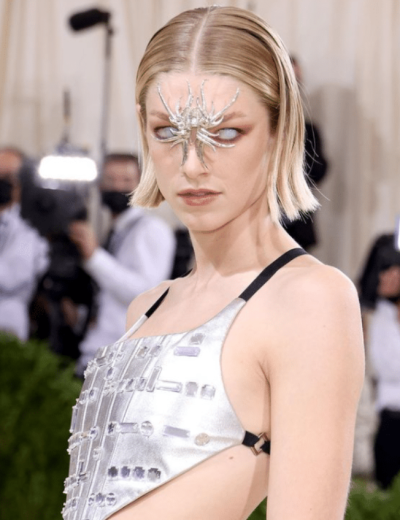
At the 2021 MET Gala (a parade of industry pawns), Schafer went for the “demon from the future” look.
In Euphoria, Jules is a 16 years-old transgender girl who just moved into town. As Rue states, Jules is “kind of a sl*tty”. In the first minutes of the series, we see Jules chatting on a dating app with a man named “Dominant Daddy”. The hookup scene is extremely difficult to watch.
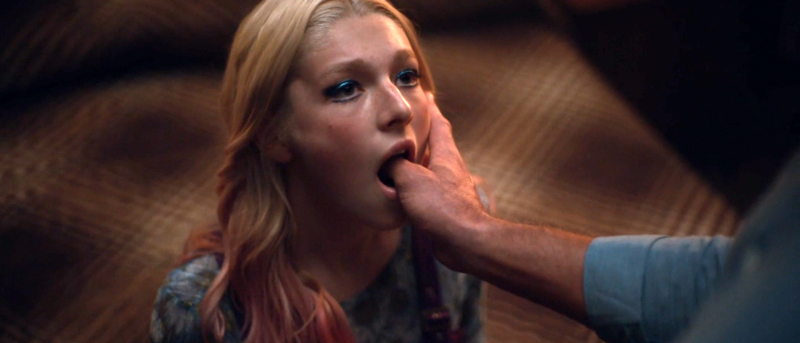
Jules ends up in a motel room with an older man who is obsessed with jamming his thumb down the throats of underage trans girls.
Then, we clearly see the man’s erect member right before he violently penetrates Jules in a scene that is literally unwatchable. It’s even unlistenable as there’s gagging and such. I cannot imagine a 13-year-old girl witnessing this highly graphic scene depicting statutory rape between an old man and a minor.
But Jules was not forced to do any of this. And, after this highly degrading scene, Jules just rides a bicycle to a nearby party, as if nothing happened. Because, in Euphoria, this is normal. It is all about sexualizing minors and normalizing pedos.
Later in the series, as we see Jules being rammed by this old guy again, Rue explains:
“When things got really uncomfortable, Jules would just imagine that she wasn’t really herself and this wasn’t really her life. She was just a character in a book or a movie or a show. That none of it was real, and, if it was, how did it matter? It’s not like her body really belonged to her in the first place”.
In other words, Jules dissociates from reality. It’s almost as if the makers of Euphoria are giving tips to their young viewers on how to deal with degrading, sadistic encounters with full-grown men.
The makers of Euphoria also use Jules to normalize transitioning genders during childhood using extreme medical procedures.
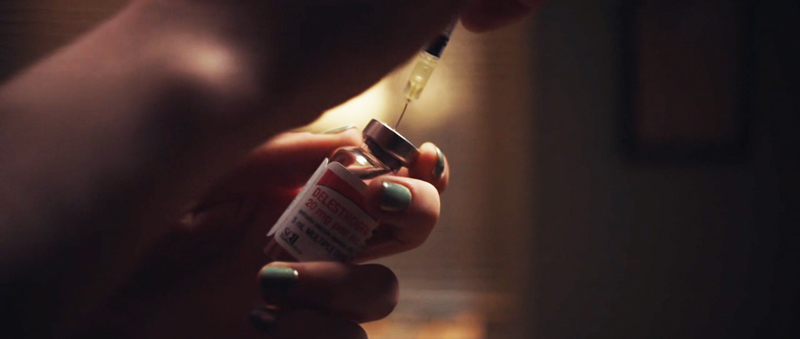
Numerous times during the series, Jules is seen injecting products such as Delestrogen (female hormones).
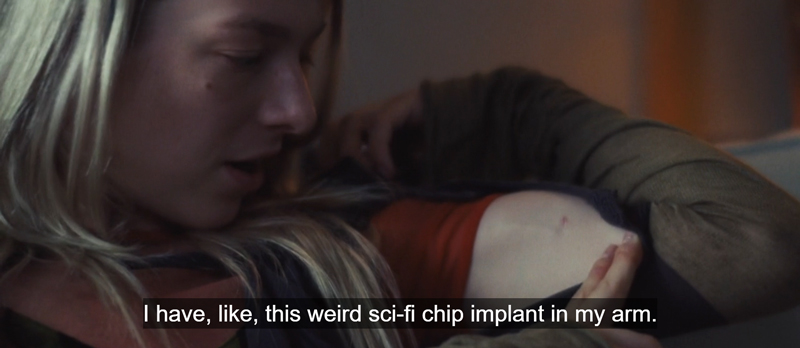
Jules also has a Supperlin implant – a hormone blocker. Jules says: “The chip stops my voice from dropping and my balls from getting bigger”.
Like Rue, Jules relies heavily on products created by big pharmaceutical companies to tolerate being alive. And, like Rue, the potentially disastrous side-effects of these products are never addressed.
In fact, Euphoria goes out of its way to promote these products. At one point, Jules explains the process of transitioning by comparing it to a character leveling up in a video game:
– It started with clothes, and then it was makeup and eventually hormones. I just kind of kept leveling up.
– So what level are you at now?
– I don’t know. But I definitely haven’t reached my full power.
Several health practitioners have stated that giving children hormones and hormone blockers is a form of child abuse. But not in Euphoria. These things (which did not even exist a few years ago) are a way of “leveling up”.
Kat: The Sexualization of Minors Agenda
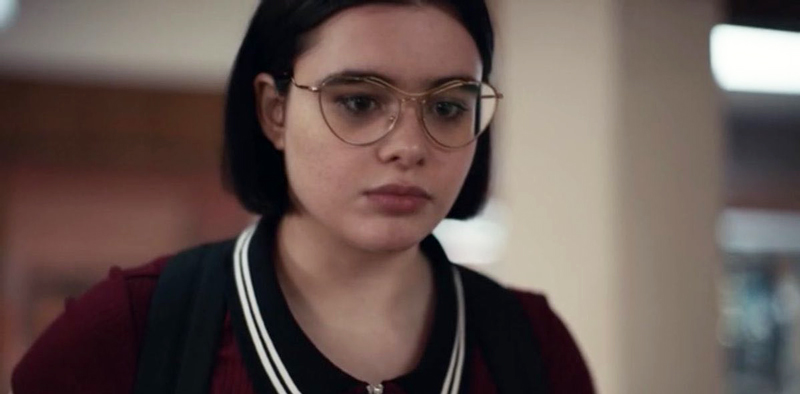
At the beginning of the series, Kat is a nerdy 16-year-old girl. She’s also a virgin. And, in the world of Euphoria, that’s an unacceptable situation that needs to be addressed as soon as possible.
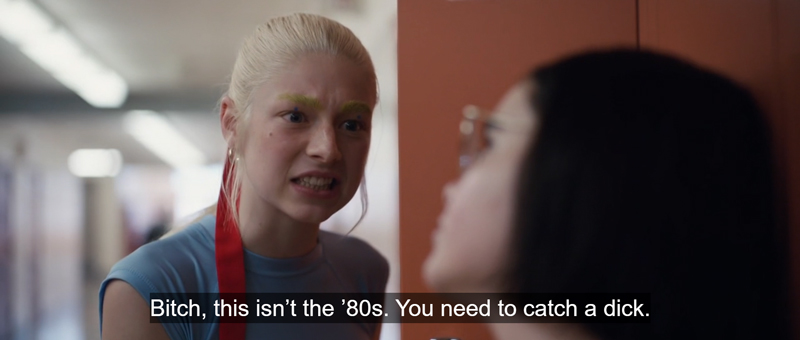
Nearly everyone around Kat tells her to “catch a D”. It is repeated several times, by several characters. Repetition is key to child grooming.
Soon enough, Kat “catches a D” at a party. And everybody is so proud of her.
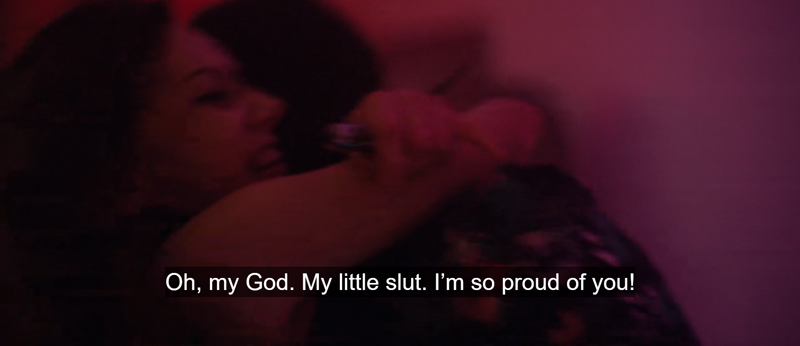
In Euphoria, the word “sl*t” is a compliment.
Sadly for Kat, her first experience was filmed and it was posted on the internet. And everyone knows about it. While Kat was distressed at first, she noticed that the video had lots of views and positive comments. Kat feels so validated that she decides to take things further.
Then, Euphoria presents to its young viewers a step-by-step guide to becoming a cam girl.

Kat signs up for an adult site to get paid.
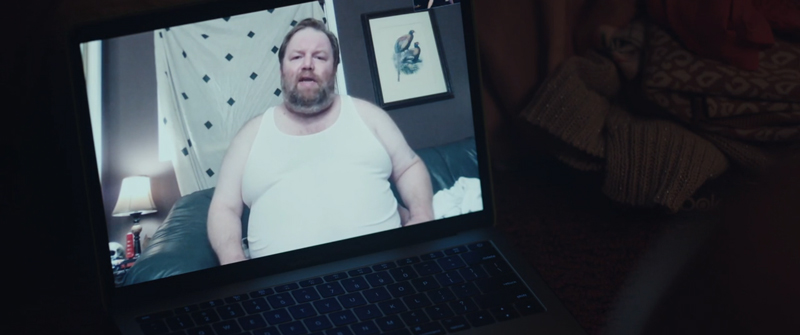
Then this old dude starts camming with 16-year-old Kat.
This old dude asks Kat to insult him. And when she does, he whips out his micropenis and starts rubbing it feverishly. We see everything. None of it is censored.
But that doesn’t matter. Kat appears to enjoy insulting the guy. More importantly, she’s making money. In fact, the show explains exactly how Kat can get paid anonymously by pedos by using cryptocurrency.
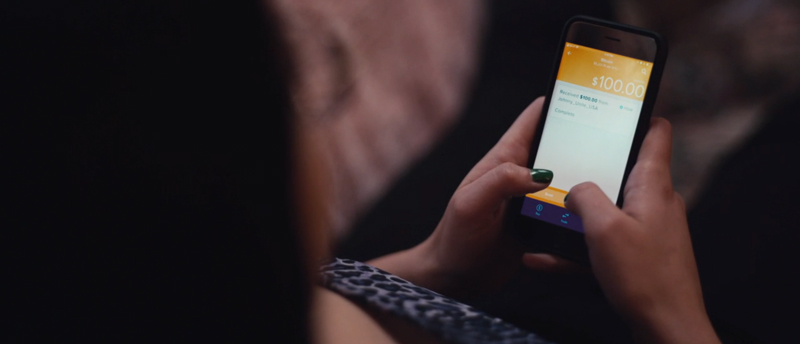
Kat receives money on her phone. What teenager wouldn’t like that?
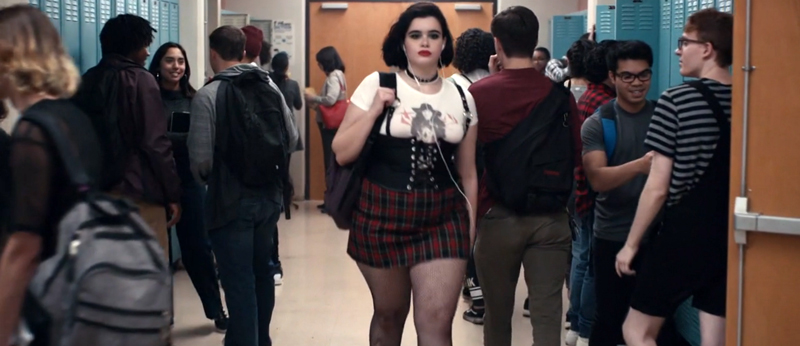
After becoming a cam girl, Kat goes to school with a cool new look and she feels great about herself. Yup, being an underage internet prostitute is awesome.
The show keeps encouraging minors to take lewd pictures and videos of themselves. In one particularly upsetting scene, Rue and Jules explain how to take a good “d*ck pic”. That segment contains dozens upon dozens of pictures of actual penises. Because grooming.
In another bizarre diatribe, Rue explains why young people HAVE to send naked pictures of themselves:
“I’m sorry. I know your generation relied on flowers and father’s permission. But it’s 2019 and, unless you’re Amish, nudes are the currency of love, so stop shaming us.”
Kids, taking pictures using the latest iPhone and sending them through the 5G network is a great idea. There’s no way this stuff can get intercepted and stored on databases that are viewable by sickos (/sarcasm).
After Kat’s transformation, she hooks up with several random dudes and copulates with them on the spot.
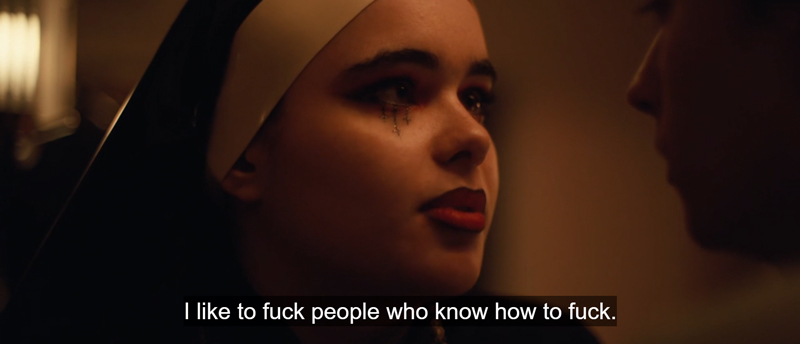
At a Halloween party, Kat dresses as a satanic nurse (inspired by Thana from the highly disturbing movie MS 45). Then, she gets laid in that costume and it’s all highly graphic.
By continually displaying explicit scenes, Euphoria basically subjects its young viewers to Beta Kitten programming on a mass scale. From my article about Monarch programming:
BETA is referred to as “sexual” programming (slaves). This programming eliminates all learned moral convictions and stimulates the primitive instinct, devoid of inhibitions. “Cat” alters may come out at this level. Known as Kitten programming, it is the most visible kind of programming as some female celebrities, models, actresses, and singers have been subjected to this kind of programming. In popular culture, clothing with feline prints often denotes Kitten programming.
– Monarch Programming
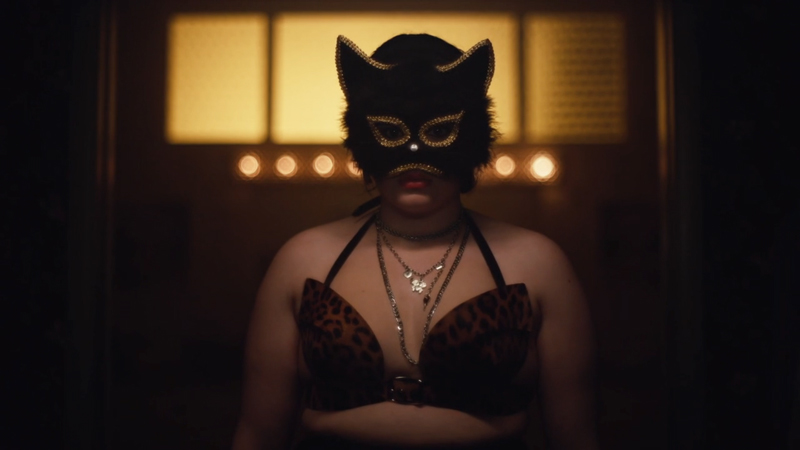
Her name is Kat. She wears a kitten mask and a feline-print top. Beta Kitten programming.
I could go on for days about Euphoria. Nearly every scene has some sort of angle with a toxic message. But we’ve all seen more than enough.
In Conclusion
I did not dig up some weird, obscure series to complain about. This is what kids are watching now. It’s on HBO. It’s backed by Drake. It’s viral on TikTok. The stars of the show are major celebrities. Teen magazines are calling them “iCoNic”.
But Euphoria is not entertainment. It is social conditioning. It captures the attention of young people with relatable high-school drama and shocks them with scenes of extreme depravity. After a while, the shock fades away and the viewers become desensitized. This is what grooming is all about. Euphoria is not youth culture. It is what the elite wants youth to become: A generation of sad and confused people, hopelessly addicted to big pharma drugs and constantly engaging in degrading acts … all under the watchful eyes of the sick pedos who want their sickness to become accepted.
Want to really feel “euphoric”? Turn this garbage off and go outside.
- LA Fire Attack Map is identical to the LA Smart City Rail Map
- Birds of a feather flock together …
- Etsy and pizza subliminal
- Dwayne "The Rock" Johnson for Vanity Fair (circa November 2021)
- Sade 2010
- UK Plan to 'UNLEASH AI'
- TikTok video shows links to Elon's "everything" app and the mark of the beast system.
Get an e-mail notification as soon as a new article is published on The Vigilant Citizen.
-

 Movies and TV2 months ago
Movies and TV2 months agoAdrenochrome and Ritual Humiliation: The True Meaning of the Movie “The Substance”
-

 Pics of the Month3 months ago
Pics of the Month3 months agoSymbolic Pics of the Month 10/24
-

 Latest News2 months ago
Latest News2 months agoKamala’s Campaign Was Objectively the Worst in Recent History
-
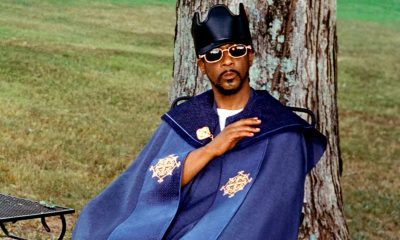
 Pics of the Month1 month ago
Pics of the Month1 month agoSymbolic Pics of the Month 12/24
-

 Latest News2 months ago
Latest News2 months agoWas the Jake Paul vs Mike Tyson Fight a Humiliation Ritual?
-

 Latest News3 months ago
Latest News3 months agoAn “Urban Opera” in Toulouse Using Massive Machines is Denounced as a Satanic Ritual
-

 Movies and TV1 month ago
Movies and TV1 month agoThe Hidden Meaning of “Smile 2”: It’s About Monarch Mind Control
-

 Latest News1 month ago
Latest News1 month agoIt Was Bound to Happen: Jay-Z Accused of Abusing a 13-Year-Old Girl












